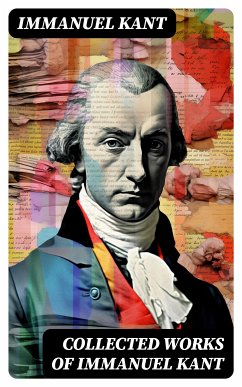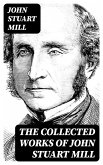The 'Collected Works of Immanuel Kant' encompasses the critical cornerstones of modern Western philosophy. With meticulous curation, this compendium presents Kant's complete critiques, inclusive of his pivotal 'Critique of Pure Reason,' 'Critique of Practical Reason,' and 'Critique of Judgment.' These seminal texts illustrate Kant's profound investigation into the faculties of human understanding, morality, and aesthetic judgment. Incorporating critical works, pre-critical essays, and a scholarly introduction by Robert Adamson, the volume situates Kant's work within the broader context of philosophical thought, encapsulating his contributions to metaphysics, ethics, and law. Literary in its articulation yet rigorous in argumentation, this collection is an exemplar of Enlightenment thinking, displayed in clear prose formatted for the contemporary reader. Immanuel Kant, a luminary in the constellation of great philosophers, is recognized for instigating a paradigmatic shift in philosophical inquiry. Born in 1724 in Königsberg, Prussia, his enduring impact derives from his exploration of the inherent structures of the human mind and his resolute belief that reason is the root of moral law. A Copernican revolution in itself, Kant's work entwines the intricate threads of human cognition, autonomy, and aesthetics, challenging and enriching the philosophical landscape. His meticulous analysis and dedication to the pursuit of knowledge mirror the Enlightenment's values, searching for universal truths and the advancement of human understanding. The 'Collected Works of Immanuel Kant' is an indispensable treasure for scholars and lay readers alike, seeking to navigate the depths of one of history's most influential thinkers. It offers not only a methodical guide through Kant's rigorous thought process but also a historical lens through which to view the enduring questions of philosophy. This comprehensive assemblage is a testimony to Kant's intellectual legacy and is strongly recommended to those who wish to comprehend the underpinnings of modern philosophy and the enduring quest for reason and moral imperatives that govern human life.
Dieser Download kann aus rechtlichen Gründen nur mit Rechnungsadresse in A, B, BG, CY, CZ, D, DK, EW, E, FIN, F, GR, H, IRL, I, LT, L, LR, M, NL, PL, P, R, S, SLO, SK ausgeliefert werden.









